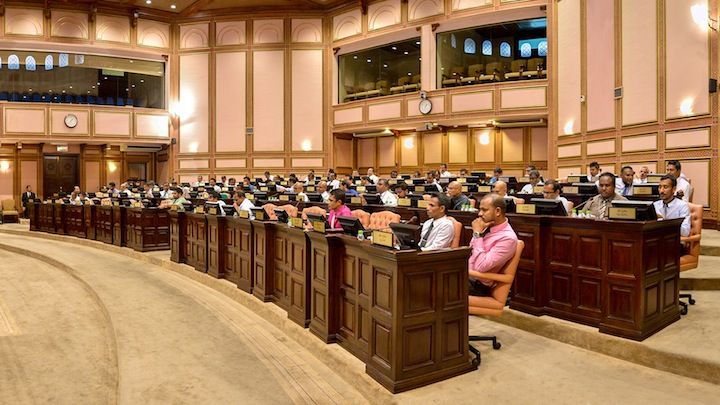‘Dangerous’ anti-terrorism bill fails to pass
During the final debate on the bill, ruling party MP Mohamed Musthafa said the bill was shaped to “keep MPs at gunpoint” and could be used to criminalise political rhetoric. The government-sponsored legislation was widely expected to be passed into law today, but Musthafa’s proposal to return the bill to committee was passed unanimously with 55 votes in favour.

26 Oct 2015, 09:00
A controversial new anti-terrorism bill that opposition MPs warned could be used to stifle dissent and target political opponents has been returned to committee for further review.
A proposal by ruling party MP Mohamed Musthafa to send the the government-sponsored legislation back to committee was passed unanimously with 55 votes in favour at today’s sitting of parliament.
The bill was up for a vote today after the national security completed its review and sent it to the People’s Majlis floor last week. It was widely expected to be passed into law.
During the final debate on the bill, MP Musthafa of the ruling Progressive Party of Maldives (PPM) said the bill was shaped to “keep MPs at gunpoint.” Provisions in the bill could be used to jail politicians for up to 20 years over political rhetoric deemed to have encouraged terrorism, he warned.
Become a member
Get full access to our archive and personalise your experience.
Already a member?
Discussion
No comments yet. Be the first to share your thoughts!
No comments yet. Be the first to join the conversation!
Join the Conversation
Sign in to share your thoughts under an alias and take part in the discussion. Independent journalism thrives on open, respectful debate — your voice matters.




